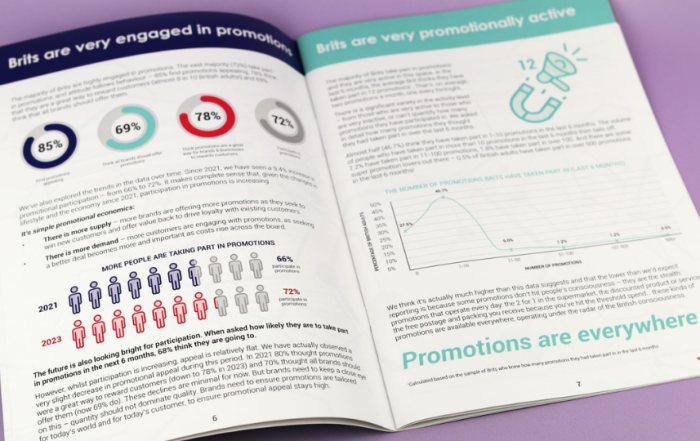



Flexible Staffing in Promotional Marketing
From large-scale product launches to intimate pop-up events, promotional marketing relies on a dynamic workforce capable of adapting to the demand for immersive, in-person experiences. Given the unpredictable nature of the work, many professionals in this industry operate on zero-hour contracts, which provide the flexibility necessary for businesses to scale staffing in response to the unpredictable demands of campaigns—varying in timing, scale, and location. Importantly, zero-hour contract arrangements empower students, freelancers, and part-time professionals by providing opportunities to balance multiple commitments while engaging in short-term, flexible work.
What is a Zero-Hour Contract?
Zero-hour contracts are agreements where employers are not obligated to offer a minimum number of working hours, and workers, in turn, are not required to accept the work offered. These contracts provide critical flexibility, particularly for students, parents, freelancers, and those balancing other commitments to work around their schedules, accommodating studies, family responsibilities, or other part-time work. For employers, it provides the ability to quickly adapt to fluctuating business needs without the burden of fixed staffing costs. This type of contract first entered the public debate in 2013, when industries needed a workforce that could adapt quickly to changing demands—particularly in sectors like hospitality, retail, and promotional marketing.
Flexible Staffing in Promotional Marketing
From large-scale product launches to intimate pop-up events, promotional marketing relies on a dynamic workforce capable of adapting to fluctuating demand. This sector thrives on delivering immersive, in-person experiences that not only capture brand awareness, but also build customer loyalty. Given the unpredictable nature of the work, many professionals in this industry operate on zero-hour contracts, which provide the flexibility necessary for businesses to scale staffing in response to the unpredictable demands of campaigns—varying in timing, scale, and location. Importantly, zero-hour contract arrangements empower students, freelancers, and part-time professionals by providing opportunities to balance multiple commitments while engaging in short-term, flexible work.
What is a Zero-Hour Contract?

Zero-hour contracts are agreements where employers are not obligated to offer a minimum number of working hours, and workers, in turn, are not required to accept the work offered. These contracts provide critical flexibility, particularly for students, parents, freelancers, and those balancing other commitments to work around their schedules, accommodating studies, family responsibilities, or other part-time work. For employers, it provides the ability to quickly adapt to fluctuating business needs without the burden of fixed staffing costs. This type of contract first entered the public debate in 2013, when industries needed a workforce that could adapt quickly to changing demands—particularly in sectors like hospitality, retail, and promotional marketing.
Flexibility & Fairness
A pro-worker, pro-business economy demands genuine, two-sided flexibility for both employers and employees. The problem to date has been that this flexibility has too often gone one way. Through the Employment Rights Bill, the government aims to fulfil its pledge to end exploitative zero-hour contracts. It is proposed that this type of contract does not offer the worker any form of certainty as to their earnings, making it difficult to apply for credit or a mortgage, to rent a flat, to plan for major events like weddings or holidays. Flexible hours of work can benefit both workers and employers, but without proper safeguards, this flexibility can be one-sided.
Impact on Promotional Marketing
For industries like promotional marketing, which must build unpredictable and time-sensitive campaigns, the ability to scale staffing up or down on short notice is vital. At the same time, these contracts also offer a lifeline of adaptable employment to many workers—students, freelancers, and part-timers who value the freedom to work across multiple projects and agencies on their own terms. The challenge now is finding a way to maintain this essential flexibility while ensuring that the rights and security of workers are equally protected. Our goal is to ensure that any proposed changes support both the businesses that depend on a flexible workforce and the talented individuals who value the autonomy these roles provide.
Next Steps For Industry
Now is the time for us to collectively shape how these changes are implemented, ensuring they work for everyone—businesses, agencies, and the workers who make our campaigns possible.
The IPM is actively gathering vital input from across the industry to present a well-rounded response to the government consultation. We need real-life examples, data on economic impact, and ideas for how to protect workers without losing the adaptability that our work demands. Your insights could be the key to ensuring the new measures support our industry.
Economic Impact
Any information or case studies demonstrating how the promotional marketing industry contributes to the wider economy would be invaluable. This includes the number of people employed on zero-hour contracts within your business and how the loss of this flexibility might impact your operations and performance.
Workforce Flexibility
We need data and insights on how zero-hour contracts enable flexibility within your organisation, allowing you to respond effectively to fluctuating staffing demands. How critical are these contracts to your ability to manage campaigns?
Proposed Solutions
We understand the ethical and moral reasons why a ban has been considered in instances where these contracts have been abused and are keen to discuss potential regulatory improvements. If you have suggestions on how to better protect workers while maintaining the flexibility that is so crucial to our sector, please share your thoughts.
Worker Impact
We are seeking testimonials from employees who benefit from the flexibility of zero-hour contracts—whether they are students, part-time workers, or freelancers. What feedback have you received from your workforce regarding the desirability of these contracts, and how might they be affected by a potential ban?
Industry Comparisons
If you have insights or data on how other industries manage flexible labour arrangements, particularly in countries with different labour laws, this could strengthen our case. Are there any alternative contract structures you’ve seen that balance flexibility with worker protections?

How You Can Help
Submit your responses to our consultation feedback form that directly addresses the questions posed by government as well as sourcing additional information that will strengthen our collective response.
For any questions and more information contact info@theipm.org.uk
Useful Links
HFSS Advertising Regulations: What Marketers Need to Know
HFSS regulations have entered a new phase. This article breaks down what the latest rules mean for marketers, where the key risks sit, and how IPM tools and legal support can help.
Promotions Wrapped! Playing Back the Biggest Trends of 2025
From Superman on The Shard to ‘AI slop’, see what cut through in 2025...
What Do Brits Want from Promotions in 2026
Get ready to unpack the promotional marketing landscape for 2026 as Mando, YouGov and the IPM prepare to launch What Brits Want from Promotions 3.0...

Flexibility & Fairness
A pro-worker, pro-business economy demands genuine, two-sided flexibility for both employers and employees. The problem to date has been that this flexibility has too often gone one way. Through the Employment Rights Bill, the government aims to fulfil its pledge to end exploitative zero-hour contracts. It is proposed that this type of contract does not offer the worker any form of certainty as to their earnings, making it difficult to apply for credit or a mortgage, to rent a flat, to plan for major events like weddings or holidays. Flexible hours of work can benefit both workers and employers, but without proper safeguards, this flexibility can be one-sided.
Impact on Promotional Marketing
For industries like promotional marketing, which must build unpredictable and time-sensitive campaigns, the ability to scale staffing up or down on short notice is vital. At the same time, these contracts also offer a lifeline of adaptable employment to many workers—students, freelancers, and part-timers who value the freedom to work across multiple projects and agencies on their own terms. The challenge now is finding a way to maintain this essential flexibility while ensuring that the rights and security of workers are equally protected. Our goal is to ensure that any proposed changes support both the businesses that depend on a flexible workforce and the talented individuals who value the autonomy these roles provide.
Next Steps For Industry
Now is the time for us to collectively shape how these changes are implemented, ensuring they work for everyone—businesses, agencies, and the workers who make our campaigns possible.
The IPM is actively gathering vital input from across the industry to present a well-rounded response to the government consultation. We need real-life examples, data on economic impact, and ideas for how to protect workers without losing the adaptability that our work demands. Your insights could be the key to ensuring the new measures support our industry.
Economic Impact
Any information or case studies demonstrating how the promotional marketing industry contributes to the wider economy would be invaluable. This includes the number of people employed on zero-hour contracts within your business and how the loss of this flexibility might impact your operations and performance.
Industry Comparisons
If you have insights or data on how other industries manage flexible labour arrangements, particularly in countries with different labour laws, this could strengthen our case. Are there any alternative contract structures you’ve seen that balance flexibility with worker protections? If there aren’t this is fine, as long as we can demonstrate we have explored other options.
Proposed Solutions
We understand the ethical and moral reasons why a ban has been considered in instances where these contracts have been abused. Therefore, we are keen to discuss potential regulatory improvements. If you have suggestions on how to better protect workers while maintaining the flexibility that is so crucial to our sector, please share your thoughts.
Worker Impact
We are seeking testimonials from employees who benefit from the flexibility of zero-hour contracts—whether they are students, part-time workers, or freelancers. What feedback have you received from your workforce regarding the desirability of these contracts, and how might they be affected by a potential ban?
Workforce Flexibility
We need data and insights on how zero-hour contracts enable flexibility within your organisation, allowing you to respond effectively to fluctuating staffing demands. How critical are these contracts to your ability to manage campaigns?

How You Can Help
Submit your responses to our consultation feedback form that directly addresses the questions posed by government as well as sourcing additional information that will strengthen our collective response.
News
HFSS Advertising Regulations: What Marketers Need to Know
HFSS regulations have entered a new phase. This article breaks down what the latest rules mean for marketers, where the key risks sit, and how IPM tools and legal support can help.
Promotions Wrapped! Playing Back the Biggest Trends of 2025
From Superman on The Shard to ‘AI slop’, see what cut through in 2025...
What Do Brits Want from Promotions in 2026
Get ready to unpack the promotional marketing landscape for 2026 as Mando, YouGov and the IPM prepare to launch What Brits Want from Promotions 3.0...





